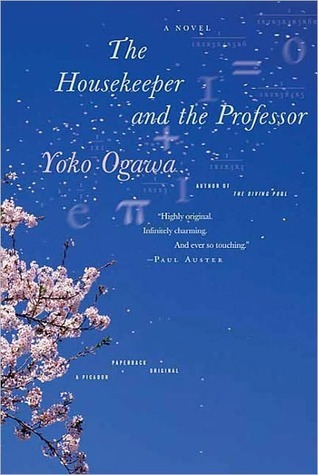More on this book
Community
Kindle Notes & Highlights
I suppose I wanted to be there when anyone was showing kindness to my son.
I spent my evening looking for another way to find the sum of the natural numbers from 1 to 10. Root should have been working on the problem, too, but perhaps because he was upset over the incident with Enatsu, he gave up almost immediately and left me to find a solution.
For the Professor, there was no shame in admitting you didn’t have the answer, it was a necessary
step toward the truth. It was as important to teach us about the unknown or the unknowable as it was to teach us what had already been safely proven.
“Peaceful” was, to him, the highest compliment.
I realized I had seen two men cry this evening. I had, of course, seen Root’s tears countless times before—as an infant, when he’d wanted to be held or fed; and later, during tantrums, or when he lost his grandmother. And, for that matter, at the moment he came into this world. But these tears were
different, and no matter how I tried to wipe them away, they seemed to flow from a place I could never reach.
“I’m mad because you didn’t trust him. I’ll never forgive you for that.”
“The mathematical order is beautiful precisely because it has no effect on the real world. Life isn’t going to be easier, nor is anyone going to make a fortune, just because they know something about prime numbers. Of course, lots of mathematical discoveries have practical applications, no matter how esoteric they may seem. Research
The only goal is to discover the truth.
“Eternal truths are ultimately invisible, and you won’t find them in material things or natural phenomena, or even in human emotions. Mathematics, however, can illuminate them, can give them expression—in fact, nothing can prevent it from doing so.”
eπi + 1 0
In my imagination, I saw the creator of the universe sitting in some distant corner of the sky, weaving a pattern of delicate lace so fine that even the faintest light would shine through it. The lace stretches out infinitely in every direction, billowing gently in the cosmic breeze. You want desperately to touch it, hold it up to the light, rub it against your cheek. And all we ask is to be able to re-create the pattern, weave it again with numbers, somehow, in our own language; to make even the tiniest fragment our own, to bring it back to earth.
What was certain was the Professor’s affection for Root. Fearful that Root would think he had caused the argument, the Professor came to his rescue in the only way he knew how. After all these years, I’m still at a loss for words to describe how purely the Professor loved children—except to say that it was as unchangeable and true as Euler’s formula itself.
He was always delighted when Root asked a question, no matter what the subject; and he seemed convinced that children’s questions were much more important than those of an adult. He preferred smart questions to smart answers.
He treated Root exactly as he treated prime numbers. For him, primes were the base on which all other natural numbers relied; and children were the foundation of everything worthwhile in the adult world.
He discounted the value of his own efforts, and seemed to feel that anyone would have done the same.
His joy had little to do with the difficulty of the problem. Simple or hard, the pleasure was in sharing it with us.


